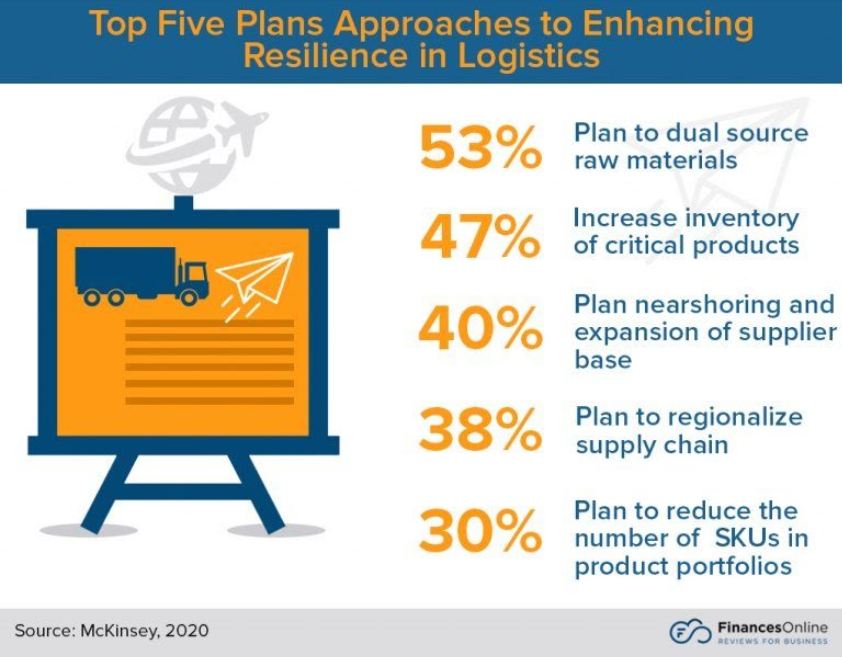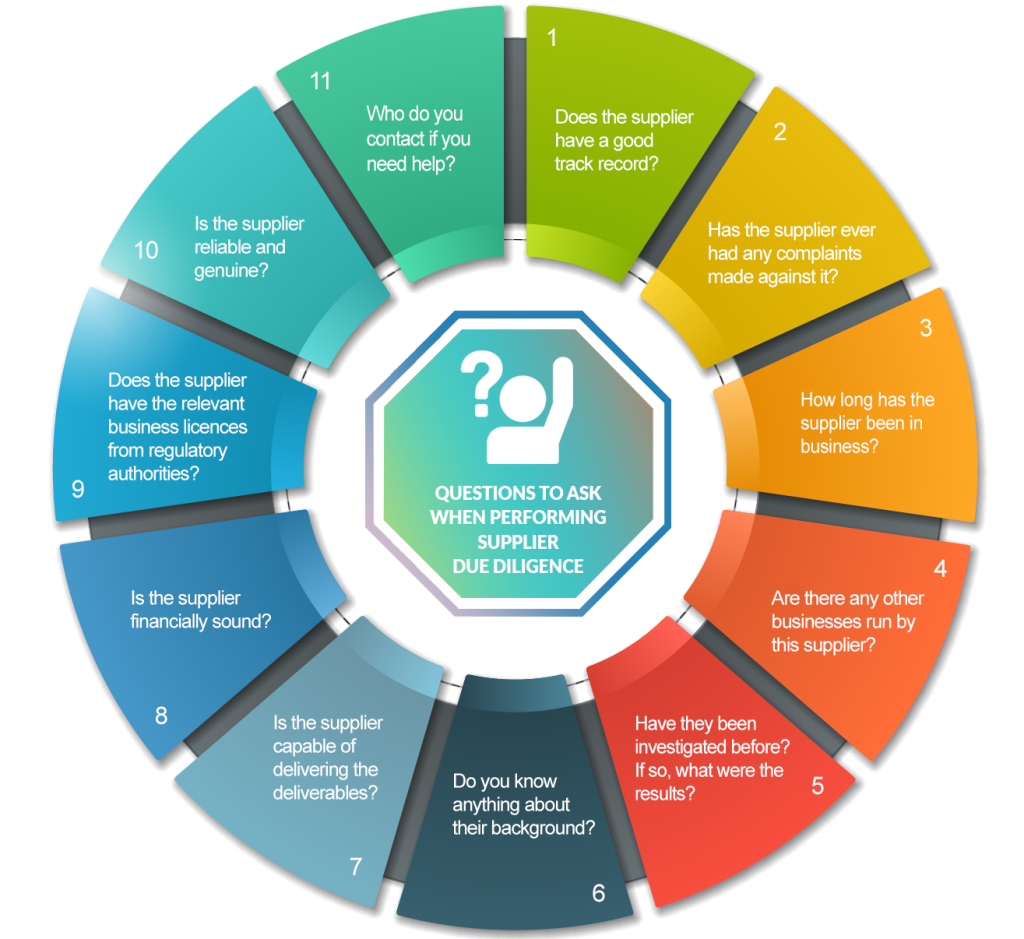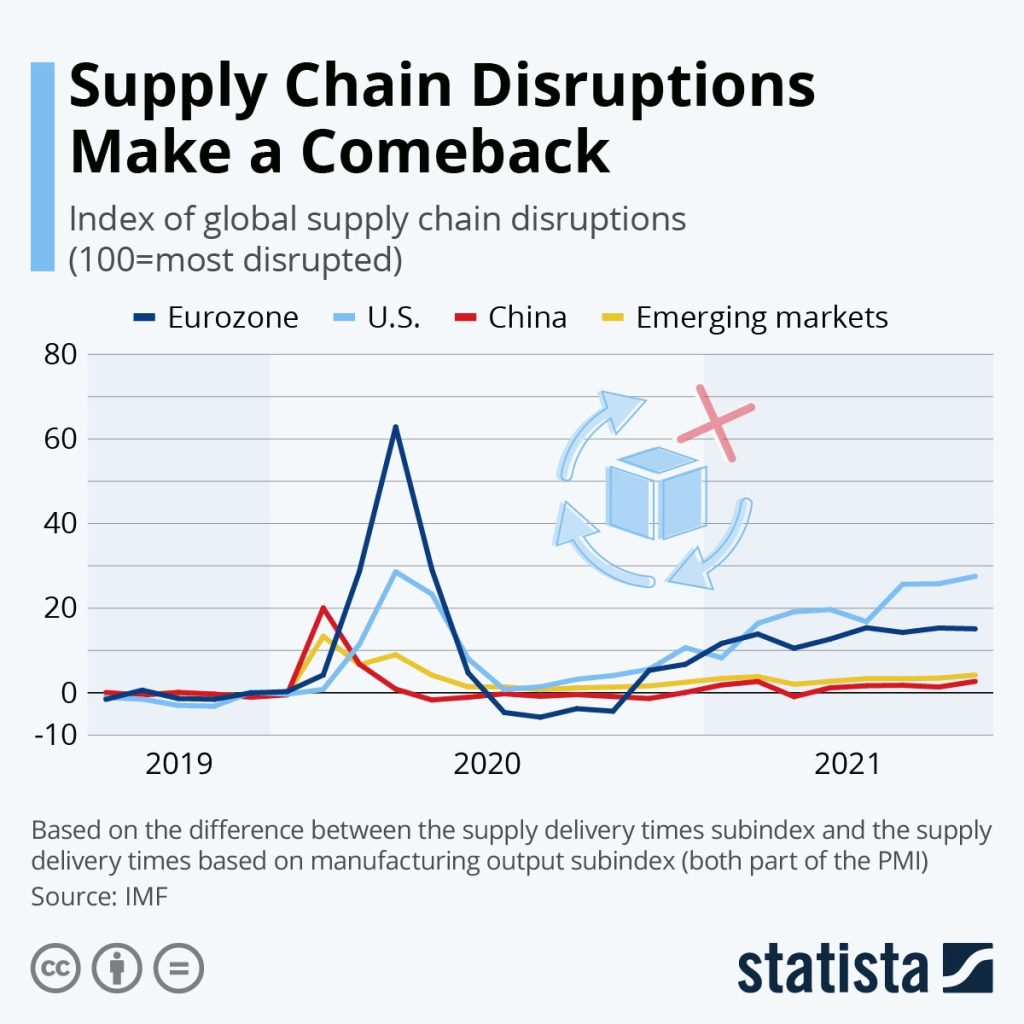A Guide to Supplier Due Diligence

Third-party suppliers are the backbone of today’s global business landscape. Businesses often rely on vendors and trusted business partners to achieve business goals. The onset of the Global Pandemic has accelerated the need for a resilient supply chain that can function without any hindrance.
Over 50% of retail organizations believe that their Supply chain is going to be a key differentiator in helping them create a winning business; with a focus on omnichannel fulfillment and improved inventory owing to the impact of COVID-19 on Logistics and Production. Yet only 6% of these teams state that they have complete visibility into their supply chain and logistics.

However, as businesses get more reliant on third parties, a certain degree of risk arises. At SignalX, we believe getting all your facts and figures straight about your suppliers is crucial to sustaining business growth.
What is Supplier Due Diligence?
Supplier due diligence is the process by which a company or agency runs checks on behalf of a business to ensure its suppliers are legitimate, credible organizations that are compliant with local regulatory authorities.
Thorough supplier due diligence helps you determine whether you should be doing business with a particular supplier. The process involves screening, verifying, onboarding, and monitoring your partners and their business.
The need for Supplier Due Diligence
Due diligence is an essential part of any business transaction. When you perform supplier due diligence, you are checking whether the supplier has the necessary resources, bandwidth, and expertise to deliver the required and committed services.
If your business relies on suppliers and vendors for your day-to-day operations, your supply chain system may be thrown into disarray when one of your vendors is not able to commit to their deliverables. With supplier due diligence, you can mitigate reputational risks, financial risks, operational risks, bribery, and corruption risks by subjecting every potential vendor to thorough screening and vetting.
The following are some reasons why your organization should perform due diligence on your vendors:
- To protect your brand and reputation from being tarnished by poor quality products or services
- To make sure you are not paying for goods or services that are substandard
- To avoid potential legal issues if you are dealing with someone who has been reported as a fraudster
- To identify any risks associated with working with an unlicensed, unregistered vendor or person
- To avoid financial loss arising out of dealing with a disreputable vendor
Questions to ask when performing Supplier Due Diligence
As part of your due diligence process, you should ask yourself some fundamental questions about your vendors and suppliers. Some of them are as follows:
- Is the supplier reliable and genuine?
- Does the supplier have a good track record?
- Has the supplier ever had any complaints made against it?
- How long has the supplier been in business?
- Does this supplier run any other businesses?
- Have they been investigated before? If so, what were the results?
- Do you know anything about their background?
- Is the supplier capable of delivering the deliverables?
- Is the supplier financially sound?
- Does the supplier have the relevant business licenses from regulatory authorities?
- Who do you contact if you need help?
Approaches to Supplier Due Diligence
Broadly, there are two types of approaches to conducting supplier due diligence:
Tiered approach: A tiered approach consists of baseline, intermediate and advanced checks. A baseline check is done on all of your vendors, irrespective of the size of the deal or the type of procurement. Intermediate and advanced checks encompass additional checks factoring in supplier dependency and procurement risks.
Risk-based approach: Procurement and contracting are complex processes, and performing all types of diligence checks on vendors may not be feasible. A risk-based approach is a flexible method by which you can categorize your risks and then conduct appropriate checks focused on addressing those risks.
Supplier Due Diligence Checklist
A comprehensive supplier onboarding checklist can help you shoot down a lot of open-ended questions, which might impact your business relationship with the potential supplier at a later stage. We’ve put together our experience of working with the top consultants and supply chain teams into this handy checklist, which you can use as a primary filter.
- Check the legitimacy of the website address.
- Contact the company via email to confirm its existence.
- Confirm the company’s location.
- Verify the company’s registration status.

If the company is registered, check the following
- Validity of licenses and registrations
- Insurance coverage.
- Bank account details.
- GST number & promptness with filings.
- Annual General report and financials
- Complaint history.
- Customer feedback.
- Product warranty policy.
- Terms and conditions.
- Privacy policy.
- Cancellation/return policy.
- Delivery timelines.
The importance of Suppliers’ Compliance with Laws and Regulations
The main reason why we need to consider compliance with laws and regulations when selecting suppliers is that it protects us from being held liable for non-compliance with these laws and regulations. For example, if you are importing goods into India, you must ensure that the products you import comply with Indian laws and standards. Similarly, if you are exporting goods outside India, you will need to ensure that the products you export comply with international standards.
Engaging in business with suppliers, who fail to comply with applicable laws and regulations, could lead to fines and penalties, which might impact your business. These fines and penalties could include heavy monetary dues and criminal charges, making a comprehensive background check the need of the hour before onboarding a new supplier.

Compliance Issues to expect from Vendors
There are different types of compliance issues that one can expect from vendors and suppliers. Some of the most common ones are:
- Non-compliance with local laws and regulations.
- Non-compliance with international laws and regulations.
- Misuse of trade secrets.
- Violations of intellectual property rights.
- Failure to provide adequate product information.
- Failure to pay taxes
- False advertising.
What is Supplier Risk Management (SRM)?
Supplier risk management is a proactive approach to managing risk within a supply chain. SRM involves identifying, assessing, monitoring, controlling and mitigating all possible risks. It also includes ensuring compliance with applicable laws and regulations.
By performing SRM, you can help reduce the likelihood of adverse events occurring. This will ultimately lead to lower costs, increased profitability and improved customer satisfaction, ergo a fast-growing business with a happy clientele.
Take Control of Supplier Risk Before It Impacts Your Business
Gain real-time visibility into supplier risks, ensure regulatory compliance,
and build a resilient supply chain with SignalX.
FAQs on Supplier Due Diligence
Should you outsource supplier due diligence?
Outsourcing vendor due diligence is an effective way to save time and money. However, outsourcing does not guarantee that you will find all the relevant information about your potential suppliers. Therefore, it is advisable to perform your own due diligence before making any final decisions.
Can I outsource my entire vendor selection process?
No. Certain processes cannot be outsourced. For instance, legal, due diligence should only be done by lawyers or other professionals. In addition, you may want to conduct some preliminary research yourself before engaging in negotiations with prospective vendors.
How does supplier due diligence help you avoid legal liability?
Due diligence helps you avoid legal liability because it ensures that you have selected a vendor who complies with applicable laws and regulations and has no legal liabilities. This means that you do not have to worry about any potential legal action arising out of the use of their services. In addition, you also do not have to worry whether they will leave you exposed to legal liability once they go bankrupt or get acquired by another entity.
What should I do when I find a possible problem with a vendor?
If you find red flags in your due diligence report regarding a vendor, you should refrain from indulging in any transaction with them.
